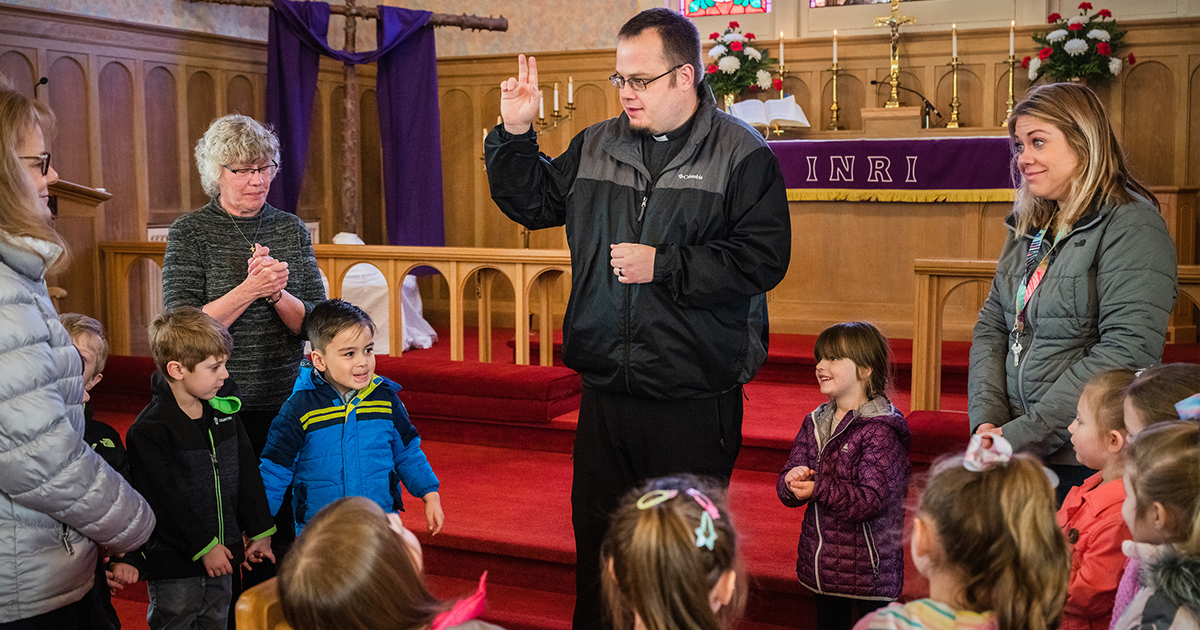
By Cheryl Magness
In July 2019, by a margin of 94 percent, The Lutheran Church—Missouri Synod (LCMS) adopted Resolution 6-01, “To Support and Participate in the Comprehensive Church Worker Recruitment Initiative.” The resolution called for the Synod to “commend, financially support, and directly participate in this comprehensive, multi-year church worker recruitment initiative” by:
- Encouraging and supporting young people to enter church work;
- Upholding church work as a sacred and joyful vocation;
- Developing the “whole person” in the process of worker formation; and
- Supporting, encouraging, and caring for existing church workers.
In the months since the convention, LCMS Pastoral Education has taken the lead in moving the initiative forward. With the assistance of Aslanian Market Research, the Synod conducted 10 focus groups and over 2,000 surveys on church worker recruitment and is compiling a comprehensive report to share with the church. Meanwhile, work continues on the goal of identifying, catechizing and building up church workers for the next generation.
On April 21, a cross-section of about 40 Synod leaders, workers and lay people who have been involved in the recruitment discussion thus far met via Zoom, due to social distancing guidelines. During the meeting, they were given a preview of Aslanian’s findings. They then broke into groups to discuss strategies for communicating with young people about the vocation of church work.
Each group focused on a specific age range: 6–12 years, 12–14 years or 14–18 years. Points of discussion included understanding the mindset of those in the age group and recognizing channels for reaching them. The meeting was hosted by Standing Partnership, a marketing and communications firm that is assisting the LCMS in the church worker recruitment initiative.
Another result of the passage of Res. 6-01 is the development of a document to address pastoral formation in the LCMS. The Rev. Dr. James Baneck, executive director of Pastoral Education, recently published a portion of that document, “A White Paper on the Current Context of Pastoral Formation,” in order to promote continued conversation, across the Synod, about pastoral formation. The white paper includes:
- Reflections on the secularization of the culture at-large and the effects of that secularization on church culture.
- Some characteristics of the millennial generation and the implications of those characteristics for pastoral formation.
- A statistical analysis of the LCMS pastorate and the significance of those statistics for the future of pastoral formation in the LCMS. The white paper notes, “If current trends stay the same regarding retirements versus new graduates (considering a 5% decrease each year in new graduates), the LCMS pastoral force will decline by 50% in the next 15 years. This is an estimate from 6,000 pastors in 2017 to 3,000 pastors in 2032.”
As the world faces continued uncertainty regarding the long-term effects of the global Covid-19 pandemic, Baneck emphasized that the church — and its workers — must continue to teach and proclaim God’s Word.
“Some are asking how Covid-19 will change the church,” Baneck said. “During plagues and other times of crisis, the church is always what is needed most in her proclamation of the Gospel of Jesus Christ crucified and risen from the dead for the salvation of all.
“Concerning the pastoral office, St. Paul writes, ‘And how are they to believe in him of whom they have never heard?’ (Rom. 10:14). From the pulpit and the classroom, the youth room and the choir loft, the hospital room and the family dinner table, the church forms and sends workers into the harvest field to tell of Jesus Christ and His eternal hope and salvation for all.
“The church worker recruitment initiative is about identifying, forming, encouraging and supporting pastors, teachers, DCEs, deaconesses, musicians and other servants of the church in order to pass the Christian faith on to the next generation — to our children and grandchildren, family, friends and neighbors —that we would all live with Christ and each other for all eternity.”
Download and read the white paper at lcms.org/pastoral.